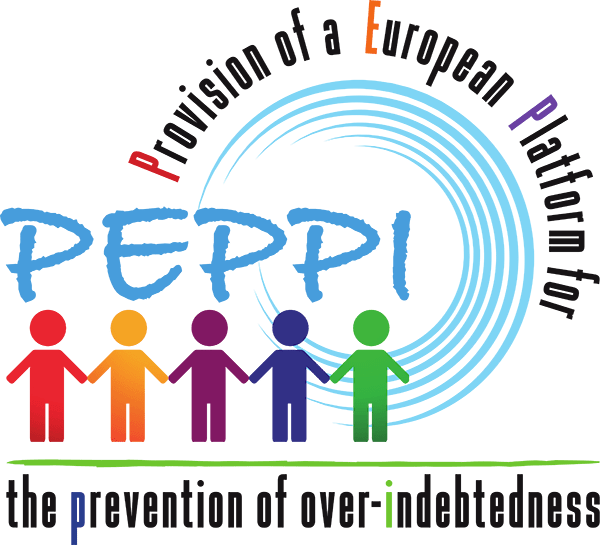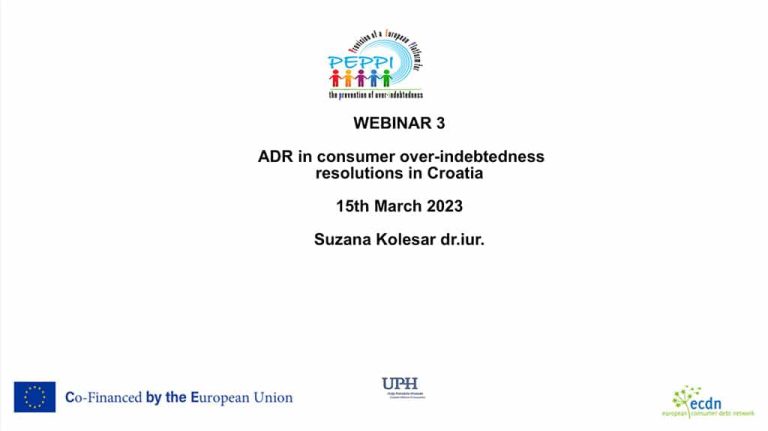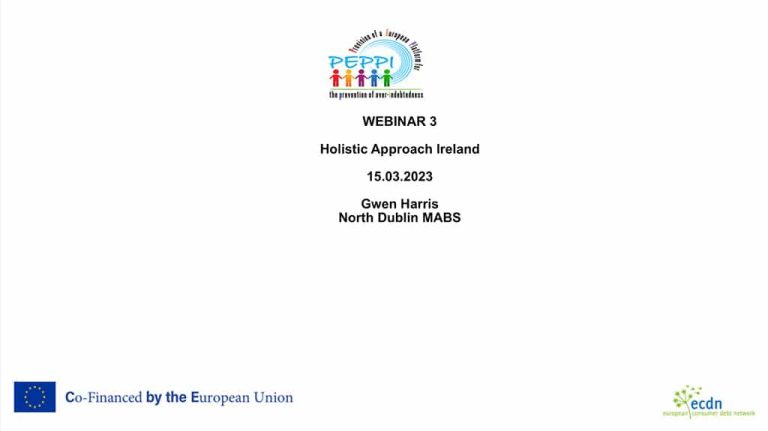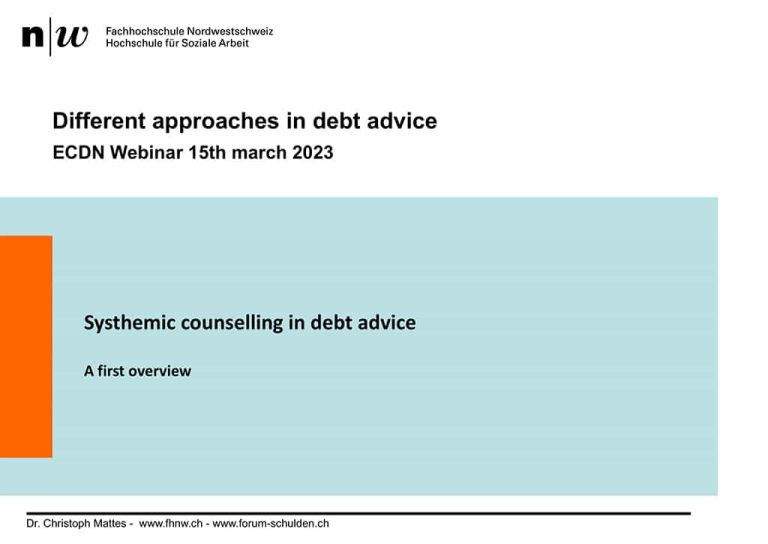Webinar, March 15, 2023
Different Approaches in Debt Advice
Invited national experts from Switzerland, Ireland and Croatia will speak on the topic of different approaches in debt advice. Speakers will discuss systemic, and holistic approaches, and alternative dispute resolution.

ADR in consumer over-indebtedness resolutions in Croatia
Suzana Kolesar
Download presentation:
https://usercontent.one/wp/ecdn.eu/wp-content/uploads/2023/03/PEPPI-Webinar-Series-Presentation-Suzana-Kolesar-15-March-2023.pdf?media=1673368772
Holistic Approach Ireland
Gwen
Harris,
North Dublin MABS
Download presentation:
https://usercontent.one/wp/ecdn.eu/wp-content/uploads/2023/03/PEPPI-Webinar-Series-Presentation-Gwen-Harris-MABS-15-March-2023.pdf?media=1673368772

By loading the video, you agree to YouTube's privacy policy.
Learn more
Holistic Approach Ireland
Gwen
Harris,
North Dublin MABS
Download presentation:
https://usercontent.one/wp/ecdn.eu/wp-content/uploads/2023/03/PEPPI-Webinar-Series-Presentation-Gwen-Harris-MABS-15-March-2023.pdf?media=1673368772
Systhemic counselling in debt advice
Dr. Christoph Mattes (University of Applied Sciences Northwestern Switzerland, University for Social Work)
Download presentation:
https://usercontent.one/wp/ecdn.eu/wp-content/uploads/2023/03/PEPPI-Webinar-Series-Presentation-Christopher-Mattes-15-March-2023.pdf?media=1673368772
Counselling and methodical action
- debt counseling process,
- documentation,
- duration (limitation number of meeting and time, time plan of advisory case)
- content, meaning, and shaping of the first meeting
- participation of those seeking advice
- ethical principles of the free debt advisory
- Questioning techniques,
- Techniques of handling clients objections,
- specifics of advisory via phone, email
- summarizing


- basics of communication,
- specific language to clients of different social status,
- consumer centric approach,
- active listening (list of client needs),
- building consumer relation,
- coaching skills of advisor,
- crisis management,
- motivating conversation, developing positive perspective and future options,
- systematic consulting,
- holistic counseling (financial/legal/psychosocial help with pedagogical preventive work),
- solution-oriented advice (step by step what the client should do),
- resources-oriented advice.
This might include key aspects of consulting, counselling and methodology of debt advice.
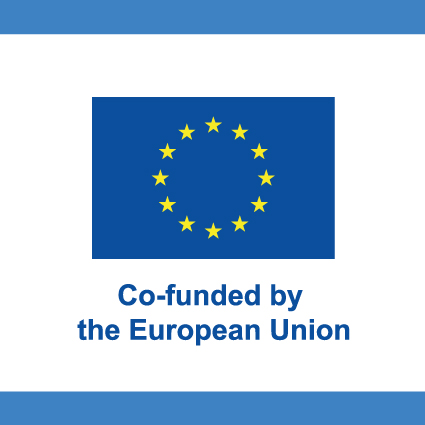
Co-Funded by the European Union. Views and opinions expressed are however those of the author(s) only and do not necessarily reflect those of the European Union or EISMEA. Neither the European Union nor the granting authority can be held responsible for them.
